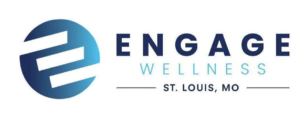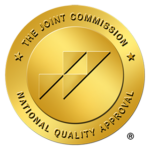DBT For Substance Abuse In St. Louis
Dialectical Behavior Therapy For Substance Use Disorder & Holistic Emotional Recovery
Dialectical Behavioral Therapy For Substance Use and Mood Disorders
Recovery goes so much deeper than maintaining sobriety. There are mental, psychological, and emotional factors that influence your everyday life and can impact how you move through treatment. Part of a true holistic healing journey is addressing the underlying emotional needs and mental health conditions. Engage Wellness offers holistic and evidence-based interventions to address the whole-person experience of healing and recovery.

What is DBT Therapy?
Dialectical Behavioral Therapy (DBT) is an effective and evidence-based form of talk therapy with substantial benefits for both psychosocial disorders and substance use disorders. DBT was initially developed for Borderline Personality Disorder (BPD) and shares some core components with Cognitive Behavioral Therapy (CBT).
DBT sessions are administered by a trained DBT therapist in a series of therapy sessions as part of an overarching treatment protocol. At Engage Wellness, DBT therapy is a strong evidence-based behavioral health treatment that blends emotional well-being with the recovery process.
How (and Why) DBT For Substance Abuse Works
Dialectical Behavioral Therapy (DBT) promotes mindfulness and helps clients develop critical coping skills, including improving distress tolerance, elevating emotional regulation, and improving interpersonal effectiveness.[1] Equipped with these holistic DBT skills, clients can restore healthy functioning, improve self-esteem, identify emotional triggers, focus on sobriety and recovery, improve decision making, and build a life worth living.
At Engage Wellness, we offer DBT for substance abuse and co-occurring disorders to support 360-degree recovery. Other evidence-based treatments include 12-step facilitation therapy, cognitive behavioral therapy, medication-assisted treatment, group therapy, and more.

Efficacy of Dialectical Behavior Therapy For Substance Use Disorder and Co-Occurring Disorders
DBT therapy was initially developed for borderline personality disorder (BPD), but the application was extended to incorporate substance use disorder, as many of those with BPD suffer from a co-occurring disorder. This approach incorporates concepts and techniques designed to promote sobriety and to decrease the impact of relapse.[2] The study revealed that with a “clear mind” and by implementing attachment strategies, clients decreased substance use.
Additionally, DBT for substance abuse has shown positive outcomes by reducing emotion-based forms of impulsivity. At the end of DBT treatment protocols, impulsivity levels were significantly reduced, and improvements were observed in distress tolerance, mindfulness, and emotion regulation.[3] These benefits and lifestyle changes cannot be overstated for someone navigating recovery and addiction treatment, as they naturally lead to an improved quality of life in every area.
What to Expect from DBT For Substance Abuse In St. Louis
DBT sessions vary from person to person, but will typically follow a format that focuses on four client-focused core functions of treatment:[4]

DBT and Addiction Treatment at Engage Wellness
Dialectical Behavioral Therapy sessions are offered as part of each of our treatment programs here at Engage Wellness. DBT’s evidence-based practices can be included in individual or group therapy sessions. Each client will receive an individualized treatment plan that outlines the best approach to treatment based on individual needs. DBT therapy modalities can be prescribed as part of the following treatment options:



